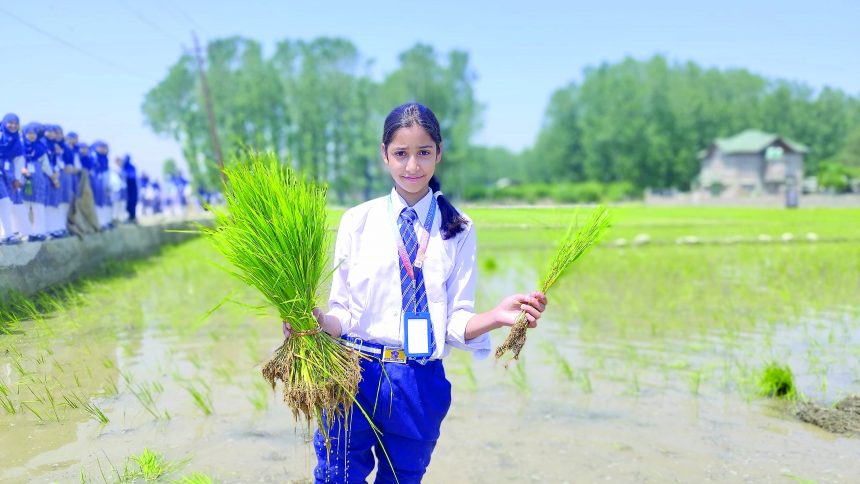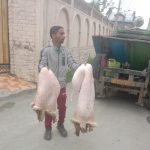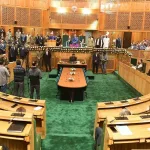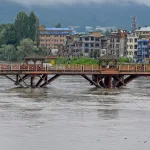In a heartwarming celebration of World Environment Day, schoolchildren from a private school in Galander, South Kashmir’s Pulwama district, stepped into waterlogged, muddy fields to plant paddy saplings on Thursday.
Initially organising a rally to raise awareness about the harmful effects of plastic use, the event took an inspiring turn when the students came across farmers busy with paddy transplantation. Curious and eager, many students rolled up their sleeves and joined the farmers, experiencing firsthand the traditional practice of paddy cultivation—a craft now declining due to farmland being converted into apple orchards and commercial spaces.
The sight of students in neat uniforms, with identity cards around their necks, working ankle-deep in mud drew a crowd of teachers, classmates, and local residents, all captivated by the unusual and inspiring scene.
“It was a wonderful experience,” said Aqsa Bilal, a student participant. “I enjoyed planting the saplings and learning the correct way to transplant them. Rice is our staple food, and we must take responsibility for growing it ourselves.” She stressed the importance of protecting agricultural land from unnecessary conversion to construction or commercial use to ensure food security.
Another student, Hurrian Shafi, explained the original purpose of the rally: “We wanted to spread awareness about plastic pollution. But seeing the farmers at work inspired us to join them. It was a great learning experience for both us and the farmers, who appreciated our help.” She added that paddy farming is a vital part of Kashmir’s cultural heritage that must be preserved for future generations.
Local farmer Irshad Ahmad Dar, who welcomed the students into his fields, expressed his delight at their participation. “The younger generation needs to understand agriculture and its role in our local economy,” he said. He fondly recalled how transplantation day was once a community festival, where neighbors and relatives gathered to help each other. The fields were filled with traditional songs called Nand-e-Baeth, and everyone shared a feast known as Thaj Kaad. “It wasn’t just work—it was a social event, a way to bond with friends and family. Sadly, much of that tradition has faded over time.”







